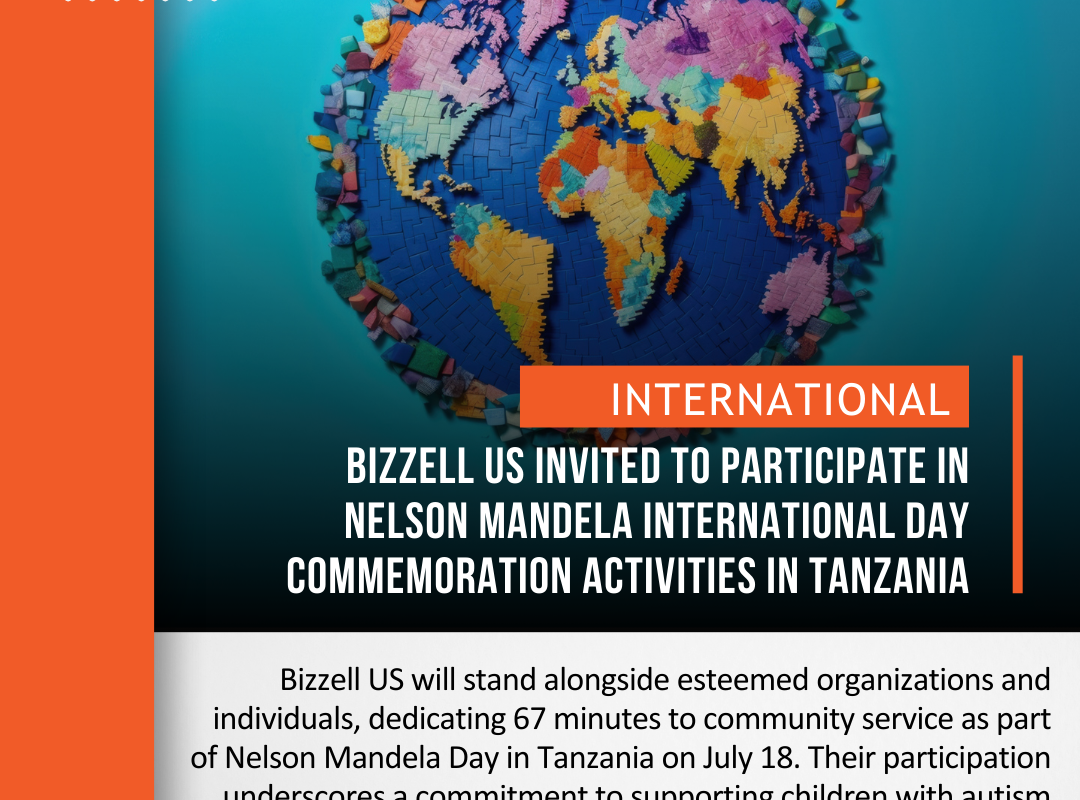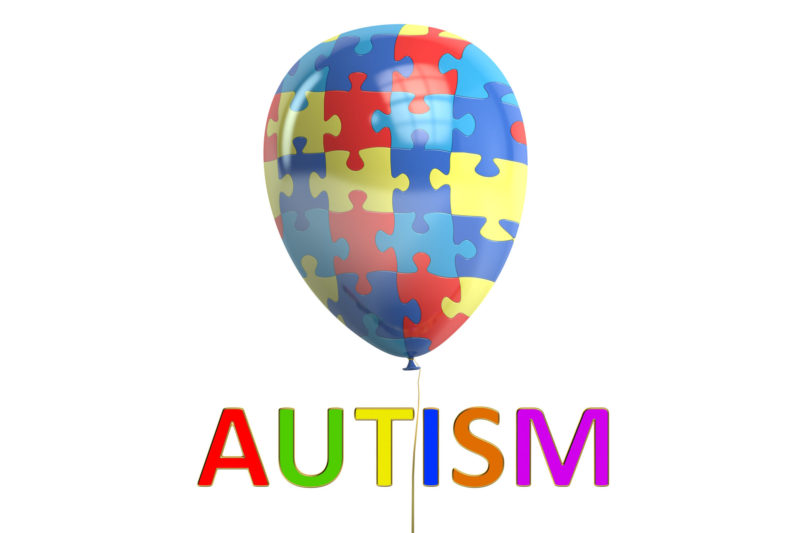Breaking Down Barriers: Increasing Our Understanding of the Autism Spectrum
By Bizzell Editorial Staff
April is Autism Awareness Month, a time devoted to raising awareness and acceptance of autism spectrum disorders (ASD). With increased knowledge of the autism spectrum, we can work together to ensure that those with autism can thrive in our communities.
ASD refers to the complex developmental spectrum of related neurological disorders affecting a person’s ability to learn, communicate, behave, and interact with peers . Signs of autism, which usually appear early in childhood, can include:
- Difficulty making or maintaining eye contact;
- Difficulty in following the cadence of a conversation, including not responding to facial and verbal cues;
- Repeating or imitating certain behaviors or phrases;
- Increased sensitivity to environmental changes, e.g., dramatic changes in the light, dislike of new places; or
- Overly intense focus on specific interests and details, e.g., remembering detailed, specific facts on topics of interest.
Diagnosing ASD is often challenging. There are no specific tests, so medical history and observations of social interactions, communication, sensory reactions, and other behaviors are frequently used for diagnosis. To determine whether ASD is present, medical professionals like pediatricians, psychologists, and psychiatrists may utilize assessments like the Autism Treatment Evaluation Checklist (ATEC). The ATEC is one of the most widely used instruments available and is accessible in multiple languages.
According to the Centers for Disease Control and Prevention’s Autism and Developmental Disabilities Monitoring (ADDM) Network, 1 in 36 children has been identified with autism in the United States , which is more likely to affect boys than girls. Early detection and interventions, such as increased education and early medical treatments, can improve the quality of life for those with the disorder and their loved ones. Many treatment options are available depending on the person’s needs. For example, to treat or manage anxiety, depression, hyperactivity, or other comorbid conditions, doctors may prescribe various medications.
Other treatments include:
- Speech therapies,
- Talk therapy with or without medication, and/or
- Behavioral therapies.
While ASD is often associated with children, young adults living with autism face unique challenges and experiences, and it is essential to understand and support them. For young people with autism, finding work and appropriate education can be difficult. One in four young adults with autism receives no support services for employment, continued education, or living more independently during their first years after high school . Individuals could find it challenging to interact socially or complete academic assignments involving abstract concepts. Due to prejudice or miscommunication, getting and keeping a job may also be challenging.
Many young adults on the autism spectrum have one or more co-occurring health or mental health conditions; for example, one in every three has an intellectual disability. Four in five have one or more co-occurring mental health conditions . In addition, young adults with autism are:
- More likely to live in low-income households, with three in ten below the federal poverty line.
- Less likely to pursue vocational or technical education and employment after graduating high school.
Let us use this time to embrace and celebrate neurodiversity and to create a more inclusive, positive space for those with autism. Many outstanding organizations provide excellent resources and support services for those with ASD and their families or caregivers. Below are a few options:
The Autism Research Center is a non-profit that supports increasing the well-being of individuals with autism through innovative, impactful research and education. This organization funds multiple grants to educate people about autism and available resources.
Autism Centers of Excellence (ACE) Program is a National Institute of Health initiative that uses an extensive research network focused on understanding and identifying ASD causes and potential treatments.
The National Autism Center is a non-profit organization that provides tools and information on evidence-based autism treatments. Their website contains information on the efficacy of various treatments and therapies and provides information and support to people with autism and their families. They offer support groups, instructional materials, and advocacy.
The Center for Autism and Related Disorders (CARD) – The CARD is a well-known organization that provides autism diagnostic and treatment services. They also provide materials and training to parents, teachers, and other professionals.
Autism Speaks offers information and support to people with autism and their families. The organization provides information and resources about autism diagnosis, treatment choices, and support services.
References
[1] National Institute of Mental Health. (2022). Autism Spectrum Disorder (NIH Publication No. 22 – MH -8084). U.S. Department of Health and Human Services, National Institutes of Health. Retrieved April 13, 2023, from https://www.nimh.nih.gov/sites/default/files/documents/health/publications/autism-spectrum-disorder/22-MH-8084-Autism-Spectrum-Disorder.pdf
[2] Maenner MJ, Warren Z, Williams AR, et al. (2023) Prevalence and Characteristics of Autism Spectrum Disorder Among Children Aged 8 Years — Autism and Developmental Disabilities Monitoring Network, 11 Sites, United States, 2020. Morbidity and Mortality Weekly Report Surveillance Summaries, 72. (2),1–14. DOI: http://dx.doi.org/10.15585/mmwr.ss7202a1
[3] Mathematica. (2022). Advancing Opportunities for Employment of Young Adults on the Autism Spectrum [Factsheet]. Washington, DC: US Department of Labor
https://www.mathematica.org/download-media?MediaItemId={30466745-260B-4844-A030-444FB482B187}



